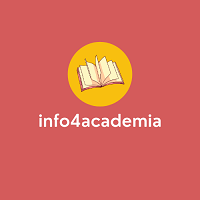The Role of English on International Business Growth and Social Inequality
Abstract
Our aim is to investigate the concept in previous research on Human Capital Concept in Education and Economics. We use Content Analysis to compile scientific articles from emerald, Science Direct, and Korean science as well as books written by experts in the field of English Education and Marketing. Digitalization is very important for companies and society to adapt. This digitalization is forcing organizations to explore new possibilities while continuing to use existing technologies in established companies. Companies need a marketing system to support the business. The ethical marketing system adopts an attitude that is consistent with the ethical and sustainable marketing concept and demonstrates courteous and ethical behavior to increase sales. English as an international language also plays an important role in supporting international marketing. The English education system has an impact on increasing the ability of students to use English
Keywords
Full Text:
PDFReferences
Andrade, M., Hartshorn, K., Evans, N., & Davis, S. (2019). Good, better, best: English language development practices in graduate business programs. The International Journal of Management Education, 17(1), 36-46.
Arseneault, R., Deal, N., & Mills, A. (2019). Reading “Canadian†management in context: Development of English and French education. Journal of Management History, 25(2), 180-202.
Bengtsson, M. (2016). How to plan and perform a qualitative study using content analysis. Nursing Plus Open, 2(1), 8-19.
Bloch, B., & Starks, D. (1999). The many faces of English: Intra language variation and its implications for international business. Corporate Communications: An International Journal, 4(2), 80-88.
Brass, J. (2015). Standards-based governance of English teaching, past, present, and future? English Teaching: Practice & Critique, 14(3), 241-259.
Coles, J., & Kingsley, M. (2021). Blackness as intervention: Black English outer spaces and the rupturing of antiblackness and/in English education. English Teaching: Practice & Critique, 20(40), 454-484.
Dhungana, S. (2021). Dialogic storying: a narrative research methodology in English language education. Qualitative Research Journal, 22(2), 173-187.
Dina, T., & Ciornei, S. (2015). Developing Good Academic Practice on Learning Business English with Open Web-based Educational Resources: The Results of a Pilot Study. Procedia - Social and Behavioral Sciences, 203(1), 310-315.
Elang H, T., & Prabowo, B. (2021). Strategic Planning for Human Resources, Technology, and Organizational Performance. Splash Magz, 1(1), 101-104.
Gatti, L., Masterson, J., Brooke, R., Shah, R., & Thomas, S. (2018). English education as democratic armor: Responding programmatically to our political work. English Teaching: Practice & Critique, 17(2), 2018, 116-131.
Hejazi, W., & Ma, J. (2011). Gravity, the English language and international business. Multinational Business Review, 19(2), 152-167.
Hurn, B. J. (2009). Will international business always speak English? Industrial and Commercial Training, 41(6), 299-304.
Kameda, N. (2001). The implication of language style in business communication: focus on English versus Japanese. Corporate Communications: An International Journal, 6(3), 144-149.
O’Neill, G. T. (2014). Just a natural move towards English: Gulf youth attitudes towards Arabic and English literacy. Learning and Teaching in Higher Education: Gulf Perspectives, 11(1), 22-42.
Puspaningtyas, M., & Harnani, S. (2021). Education and Technology in Human Capital Management Studies in Indonesia. Tamansiswa Management Journal International, 1(1), 1-2.
Revell, P. (2007). Using English for International Business: A European case study. English for Specific Purposes, 26(1), 103-120.
Rosado, J. (2018). English Education Policy Trends in Puerto Rico and the Implications of the Language of Instruction in Puerto Rican Universities. Innovations in Higher Education Teaching and Learning, 12(1), 99-111.
Rusminingsih, D., & Mulyono, M. (2020). The effect of leadership variables, abilities, and motivation on the lecturers performance of public and private universities in Malang. BioLEAGUES Worldwide: International Conference of Education, Management, and Social Sciences (EDUMAS), 1 (1), 21-22.
Rusmingsih, D., Widarni, E. L., & Bawono, S. (2021). Human psychological factors in the success of human capital investment in driving financial performance, case study of the hotel industry in Indonesia and Malaysia. HOLISTICA–Journal of Business and Public Administration,12(1), 69-75.
Sandiford, C. (2014). The enculturation of pre-service Emirati English language teachers. Education, Business and Society: Contemporary Middle Eastern Issues, 7(1), 2-16.
Tanner, S., & Berchini, C. (2017). Seeking rhythm in white noise: Working with whiteness in English education. English Teaching: Practice & Critique, 16(1), 40-54.
Vielba, C. A., & Edelshain, D. J. (1997). Are business schools meeting the challenge of international communication? Journal of Management Development, 16(2), 80-92.
Wang, L., & Fan, J. (2020). Assessing business English writing: The development and validation of a proficiency scale. Assessing Writing, 46(1), 179-195.
Zainuddin, S., Pillai, S., Dumanig, F., & Phillip, A. (2019). English language and graduate employability. Education + Training, 61(1), 79-93.
Zhang, Z. (2013). Business English students learning to write for international business: What do international business practitioners have to say about their texts? English for Specific Purposes, 32(3), 144-156.
DOI: https://doi.org/10.32535/ijabim.v7i3.1752
Refbacks
- There are currently no refbacks.
Copyright (c) 2022 Cahya Budi Irawan, Meinarti Puspaningtyas, Ana Castellano, Danang Dwi Gusti Fajar Yanto

This work is licensed under a Creative Commons Attribution-NonCommercial-ShareAlike 4.0 International License.
International Journal of Applied Business and International Management (IJABIM)
ISSN 2614-7432 (Print) | ISSN 2621-2862 (Online)
DOI Prefix: 10.32535 by CrossRef
Published by AIBPM Publisher
JL. Kahuripan No. 9, Hotel Sahid Montana, Malang, Indonesia
Email: journal.ijabim@gmail.com
Phone: +62 341 366222
Website: https://aibpmpublisher.com/
Governed by
Association of International Business and Professional Management
Email: admin@aibpm.org
Website: https://www.aibpm.org/
Licensing Information

The International Journal of Applied Business and International Management (IJABIM) is licensed under a Creative Commons Attribution-NonCommercial-ShareAlike 4.0 International License .













